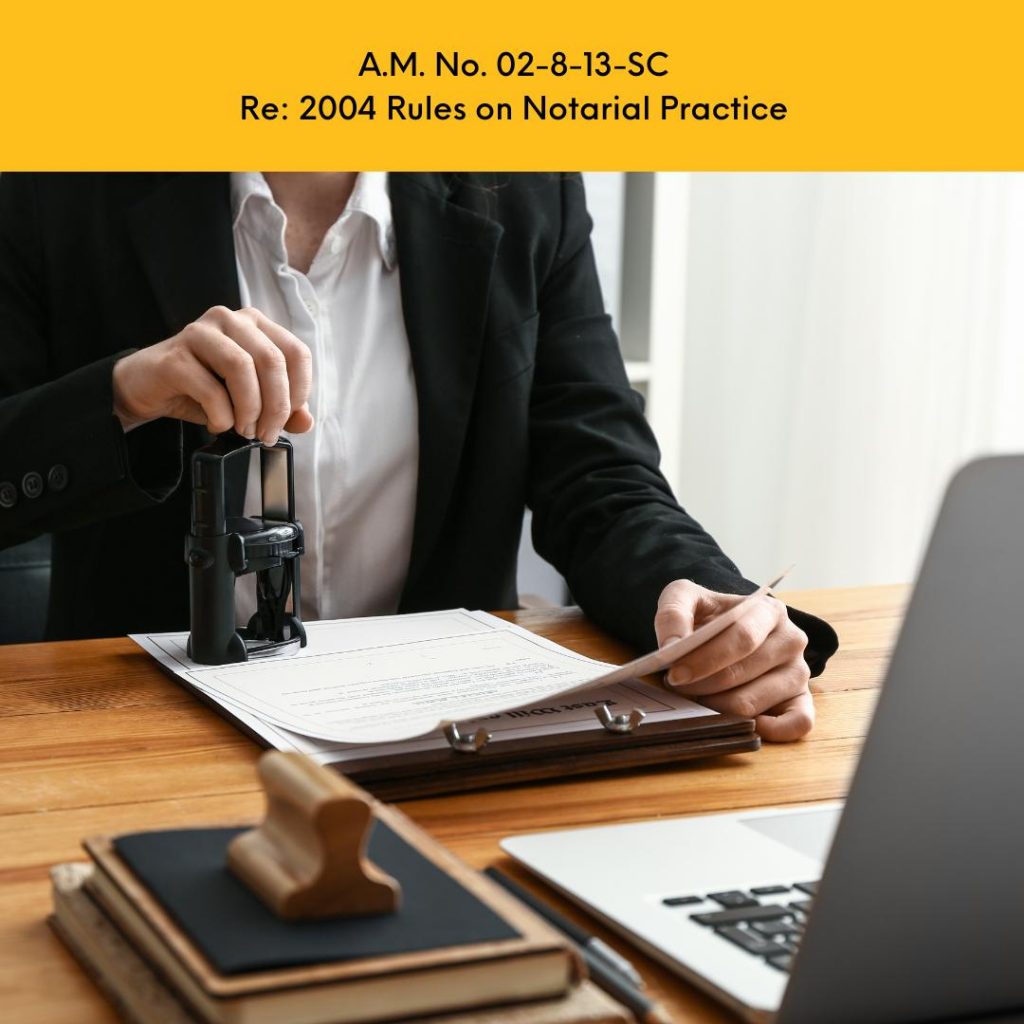
Published 14 July 2025, The Daily Tribune
On March 4, 2025, the Supreme Court en banc promulgated A.M. No. 02-8-13-SC, amending the 2004 Rules on Notarial Practice. These long-overdue changes aim to modernize the rules and embrace the benefits of digitization, all while ensuring that the integrity of notarized documents remains unimpeachable.
Under the amended rules, notaries public—both new applicants and those with existing commissions—must now provide a valid and professional email address. This detail, while seemingly minor, is critical for the digital overhaul of notarial practice. The notary must notify the Executive Judge of any changes to the email address of record. This move reflects the Supreme Court’s desire to make notarial practice responsive, efficient, and accountable.
Perhaps the most transformative change is the mandatory submission of electronic copies of notarized documents to the clerk of court. When the notarized document is a contract, the notary is now required to retain an exact and complete electronic copy in PDF format. This file shall be considered the duplicate original. It must be emailed to the clerk of court using the notary’s email of record. The file name must clearly indicate the title or designation of the document, the date of notarization, and, if needed, abbreviated names of the parties.
This provision is not merely directory; failure to transmit these electronic copies is now a punishable offense under the amended Notarial Rules.
Further reinforcing transparency, the notary must also transmit an electronic copy of the notarized document to the signatory or signatories—again using email or an agreed file-sharing platform—within five days from the completion of the notarial act or the deadline for submission to the clerk of court. This is to be done at no cost to the signatory, although the requirement may be waived.
If any material discrepancy is discovered by the signatory—especially one that affects the rights of a party—the notary must be informed in writing and is obligated to act. Failure to rectify such discrepancies, or even failure to respond, will not only block renewal of the notary’s commission but could also result in permanent disqualification. Worse still, sending an uncorrected version to the clerk of court may lead to outright revocation of the commission.
The amendments are also strict on form. The official seal of the notary must be visibly impressed in the electronic copy. The use of a stamp or secondary reproduction is not a valid substitute. This requirement reinforces the visual authority and verifiability of electronic documents in the digital age.
The reform effort does not stop at the notary’s end. All courts retaining electronic copies of notarized documents are now directed to conduct an inventory and assessment of their notarial archives. A report must be submitted to the Office of the Court Administrator to determine the feasibility of a more comprehensive digitization of records.
These amendments signal a significant shift in how notarial acts are documented, archived, and protected. They bring the practice into alignment with technological realities while setting a high bar for accountability. In the end, what the Court has done is to remind us that embracing innovation is not just a matter of convenience—it is a mandate for credibility and trust in the legal process.
For more of Dean Nilo Divina’s legal tidbits, please visit www.divinalaw.com. For comments and questions, please send an email to cad@divinalaw.com.

